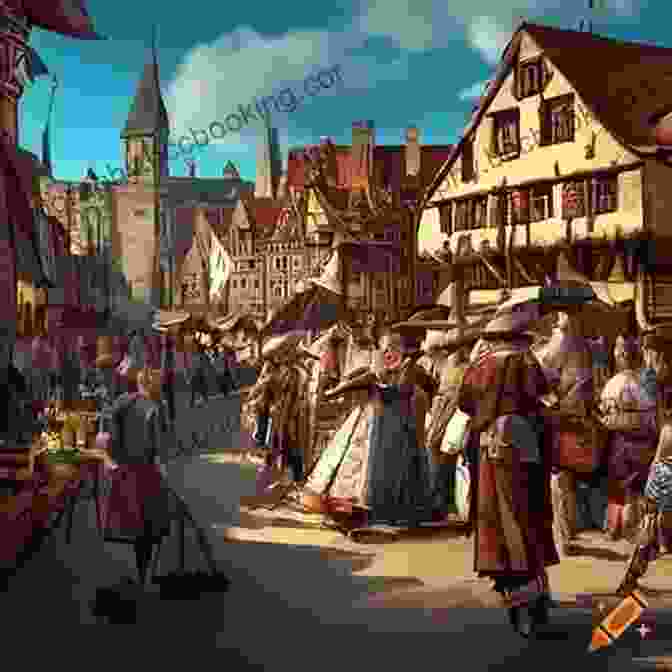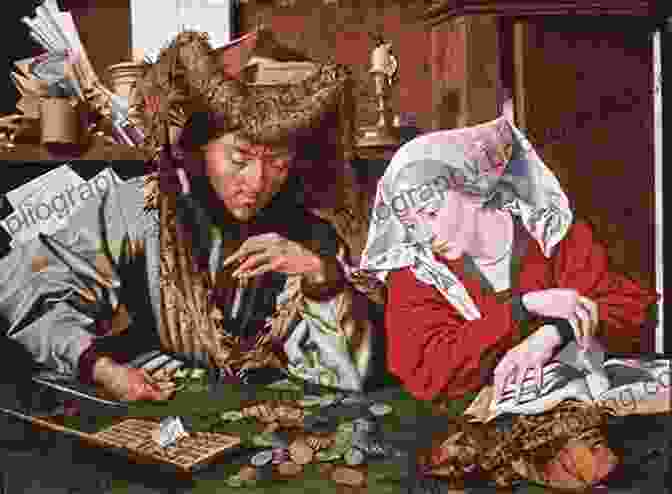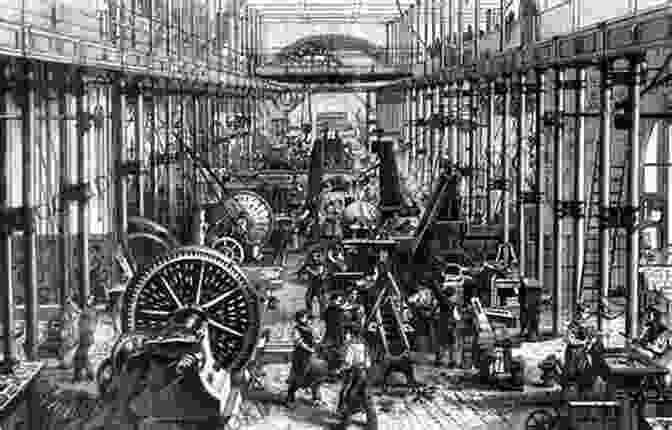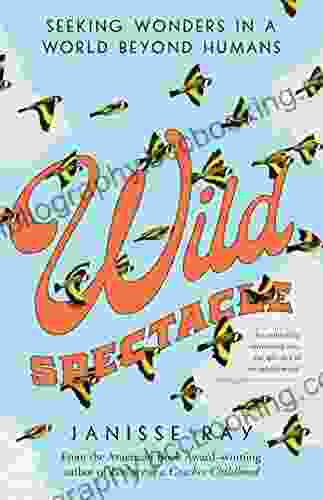How Market Economies Have Emerged and Declined Since AD 500

Throughout history, market economies have played a pivotal role in shaping human civilization. They have facilitated the exchange of goods and services, stimulated innovation, and driven economic growth. However, the evolution of market economies has not been a linear journey, but rather a series of complex and dynamic processes involving both emergence and decline.
4.7 out of 5
| Language | : | English |
| File size | : | 5068 KB |
| Screen Reader | : | Supported |
| Print length | : | 352 pages |
| Lending | : | Enabled |
In this article, we will embark on a historical exploration of market economies, tracing their origins and development from the early Middle Ages to the modern era. We will examine the factors that have influenced their rise and fall, uncovering the interplay of technological advancements, political ideologies, and social transformations.
The Birth of Market Economies: The Early Middle Ages (AD 500-1000)
The seeds of market economies were sown in the early Middle Ages, as Europe gradually emerged from the ruins of the Roman Empire. With the rise of manorialism and the decline of centralized authority, local markets began to flourish. These markets served as centers for the exchange of agricultural surpluses and artisan goods, fostering economic activity and specialization.

Mercantilism and State Intervention: The Late Middle Ages and Early Modern Era (AD 1000-1800)
With the growth of trade and the emergence of nation-states, mercantilism became the dominant economic paradigm. Governments sought to regulate and control trade to maximize their own wealth and power. This era saw the implementation of tariffs, subsidies, and other protectionist policies designed to promote domestic industries and limit foreign competition.

The Industrial Revolution and Capitalism: The 19th Century
The Industrial Revolution, which began in Britain in the 18th century, marked a watershed moment in the evolution of market economies. Technological advancements such as the steam engine and the cotton gin led to a surge in productivity and economic growth. This era also witnessed the rise of capitalism, an economic system characterized by private ownership of the means of production and the pursuit of profit.

Challenges and Transitions in the 20th and 21st Centuries
The 20th century witnessed a series of challenges and transitions for market economies. The Great Depression, two world wars, and the rise of communism had a profound impact on economic systems worldwide. The post-war era saw the emergence of Keynesian economics, which emphasized government intervention to stimulate demand and manage the business cycle.

: The Dynamic Evolution of Market Economies
The history of market economies is a testament to their resilience and adaptability. From their origins in the early Middle Ages to the present day, market economies have been shaped by a multitude of factors, from technological innovations to political ideologies. They have endured challenges, embraced new ideas, and continued to drive economic progress.
As we look towards the future, it is clear that market economies will continue to evolve. The rise of globalization, the digital revolution, and the challenges of climate change will present both opportunities and challenges for economic systems worldwide. However, one thing that history has taught us is that market economies have the capacity to adapt and thrive in the face of adversity.
By understanding the historical evolution of market economies, we can better appreciate their complexities and dynamics. This knowledge can guide us as we navigate the economic challenges and opportunities of the 21st century.
4.7 out of 5
| Language | : | English |
| File size | : | 5068 KB |
| Screen Reader | : | Supported |
| Print length | : | 352 pages |
| Lending | : | Enabled |
Do you want to contribute by writing guest posts on this blog?
Please contact us and send us a resume of previous articles that you have written.
 Book
Book Novel
Novel Page
Page Chapter
Chapter Text
Text Story
Story Genre
Genre Reader
Reader Library
Library Paperback
Paperback E-book
E-book Magazine
Magazine Newspaper
Newspaper Paragraph
Paragraph Sentence
Sentence Bookmark
Bookmark Shelf
Shelf Glossary
Glossary Bibliography
Bibliography Foreword
Foreword Preface
Preface Synopsis
Synopsis Annotation
Annotation Footnote
Footnote Manuscript
Manuscript Scroll
Scroll Codex
Codex Tome
Tome Bestseller
Bestseller Classics
Classics Library card
Library card Narrative
Narrative Biography
Biography Autobiography
Autobiography Memoir
Memoir Reference
Reference Encyclopedia
Encyclopedia Peter Jay Black
Peter Jay Black Illysa R Foster
Illysa R Foster Irv Kalb
Irv Kalb Joey Acker
Joey Acker Jane Jacobs
Jane Jacobs Sean Mckeever
Sean Mckeever James Creelman
James Creelman J E Esslemont
J E Esslemont James Kaiser
James Kaiser Ian Adamson
Ian Adamson Irving Layton
Irving Layton Rebecca Bailey
Rebecca Bailey Isabella Kung
Isabella Kung Martin Chu Shui
Martin Chu Shui Robert A Conover
Robert A Conover Simon Garfield
Simon Garfield J A Baker
J A Baker J Michael Holloway
J Michael Holloway Ian Bremmer
Ian Bremmer Megan Lane
Megan Lane
Light bulbAdvertise smarter! Our strategic ad space ensures maximum exposure. Reserve your spot today!

 Jonathan HayesImmerse Yourself in the Haunting and Heartbreaking Tales of "The Weeper and...
Jonathan HayesImmerse Yourself in the Haunting and Heartbreaking Tales of "The Weeper and... Percy Bysshe ShelleyFollow ·10.5k
Percy Bysshe ShelleyFollow ·10.5k Gene SimmonsFollow ·7.2k
Gene SimmonsFollow ·7.2k Edwin BlairFollow ·12.9k
Edwin BlairFollow ·12.9k Dylan HayesFollow ·8.7k
Dylan HayesFollow ·8.7k Robbie CarterFollow ·12.2k
Robbie CarterFollow ·12.2k Branden SimmonsFollow ·3.2k
Branden SimmonsFollow ·3.2k Juan ButlerFollow ·4.8k
Juan ButlerFollow ·4.8k Andres CarterFollow ·14.5k
Andres CarterFollow ·14.5k

 Luke Blair
Luke Blair101 Amazing Facts About Australia: A Journey Through the...
A Literary Expedition Unveiling the Treasures...

 Harry Hayes
Harry HayesWitness the Velocity and Legacy of the Scarlet Speedster:...
Delve into the Lightning-Charged...

 Stan Ward
Stan Ward101 Amazing Facts About Ancient Egypt: Unraveling the...
: A Timeless Realm of Wonder Ancient Egypt, a...

 Stephen King
Stephen KingEscape into Adventure: Unveil the Secrets of Adventure...
In the annals of comic book history,...

 Forrest Blair
Forrest BlairThe Oxford Dog Training Company Presents: A Holistic...
In the realm of dog...
4.7 out of 5
| Language | : | English |
| File size | : | 5068 KB |
| Screen Reader | : | Supported |
| Print length | : | 352 pages |
| Lending | : | Enabled |












